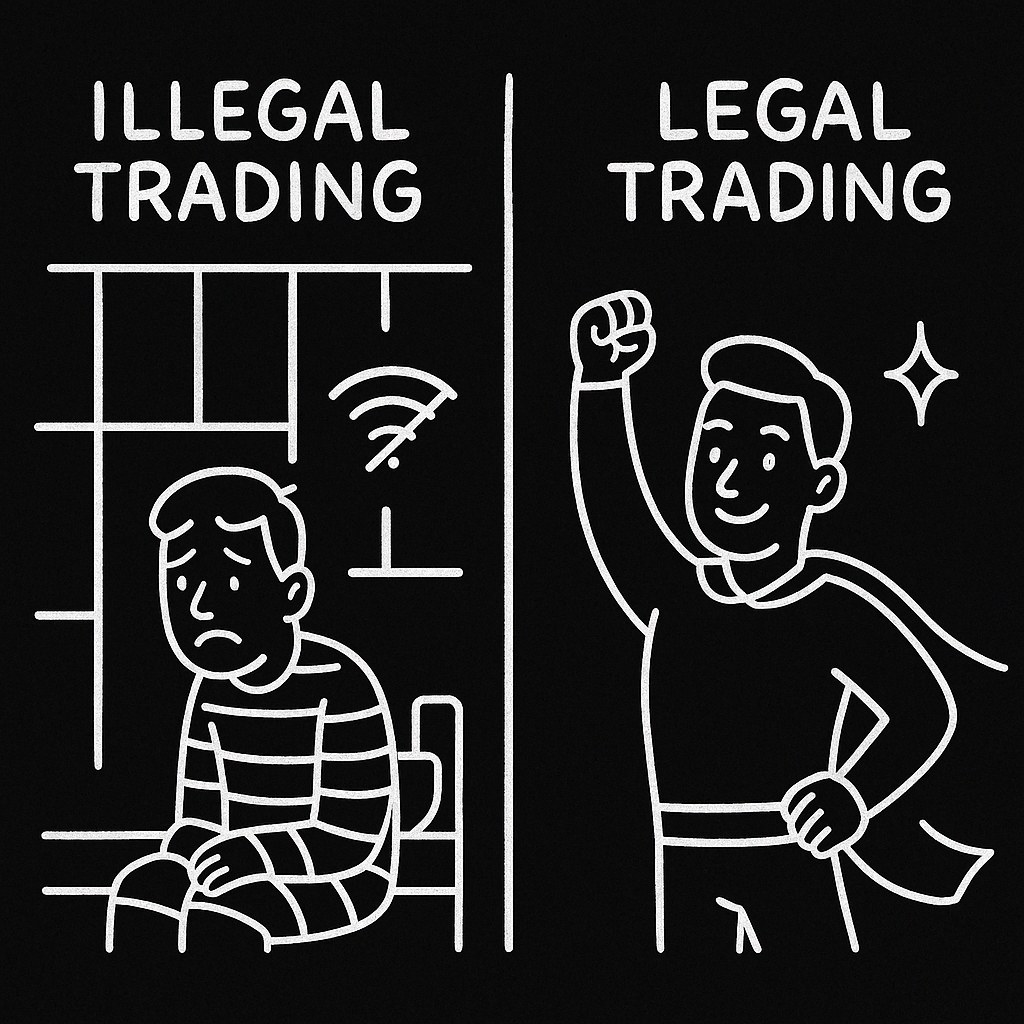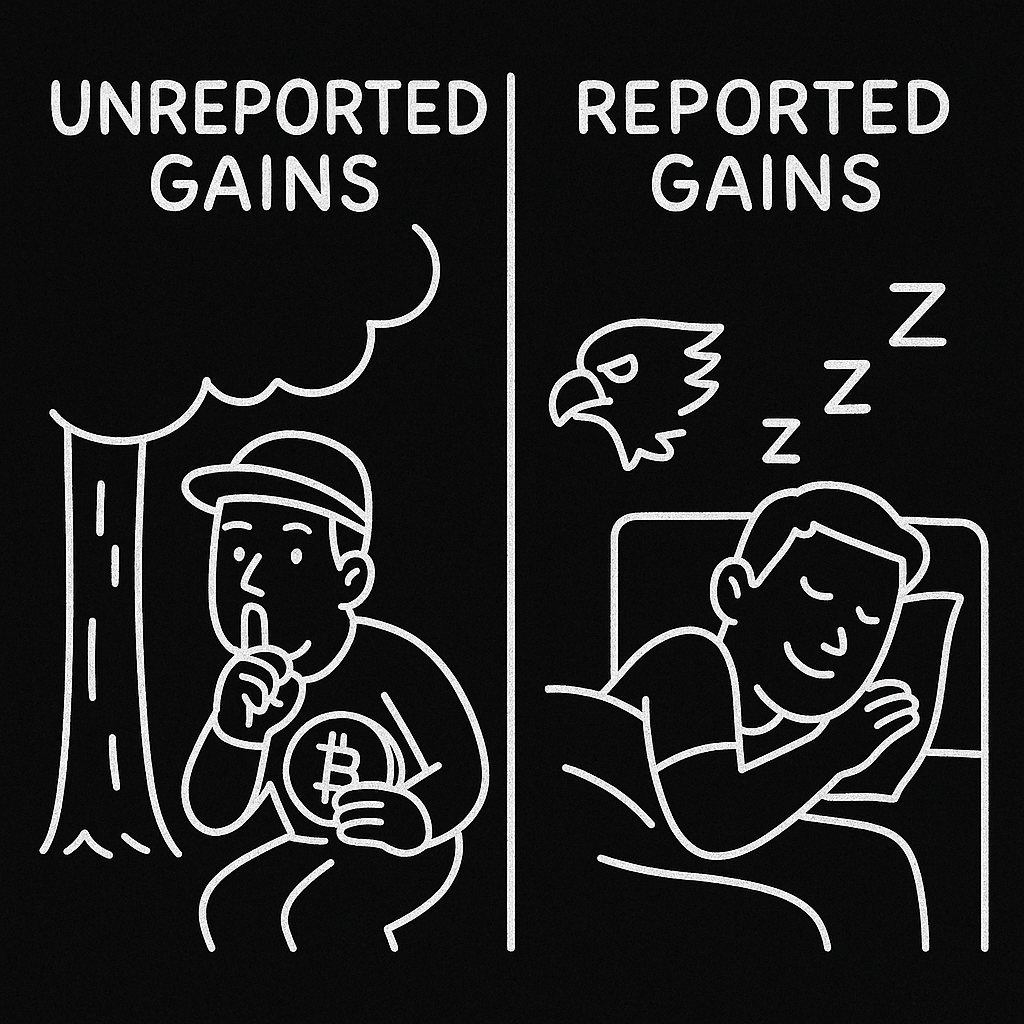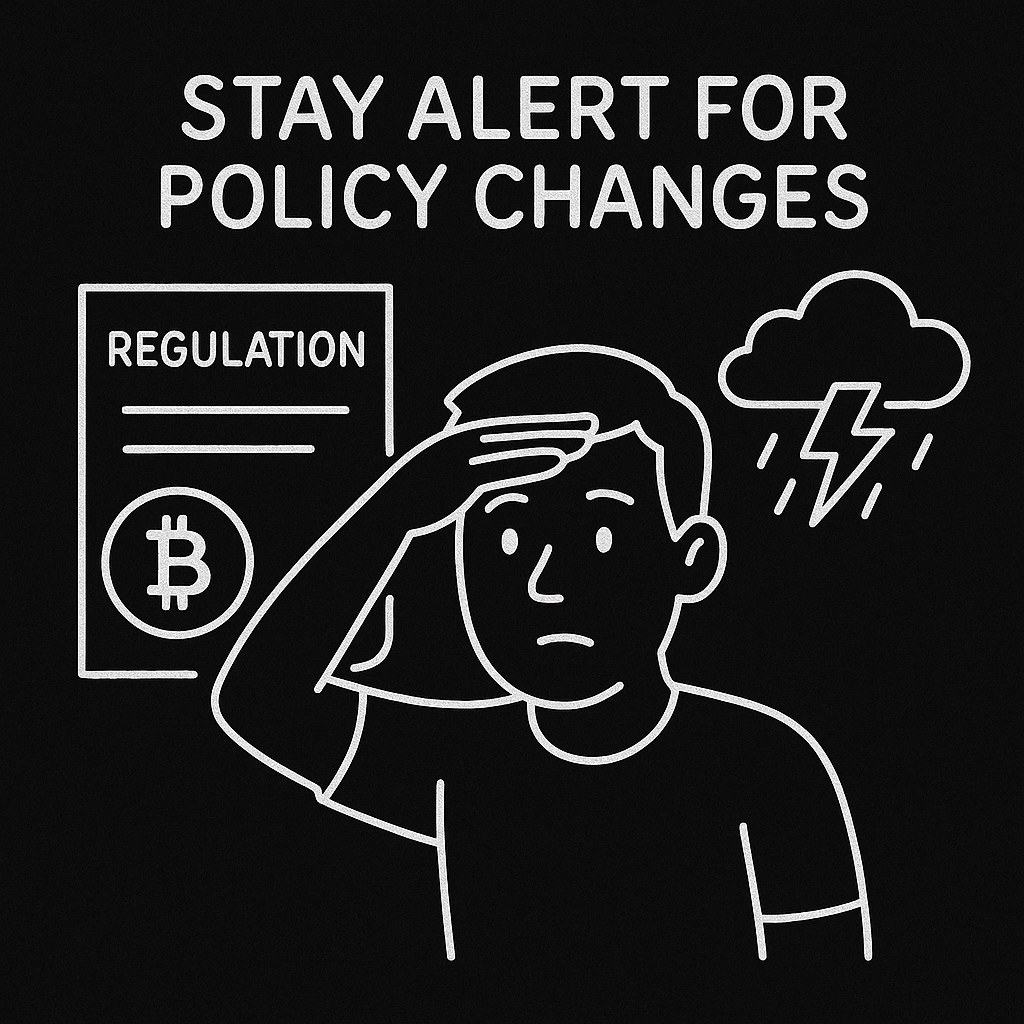Stick To The Right Side
Avoiding Jail Time

Trading illegally can land you in hot water, and we're not talking about a relaxing spa day. You might end up in a cell with no Wi-Fi, which is basically a digital death sentence.
Trading within the law means you're not risking your reputation or freedom. It's like having a superhero cape – you get to save the day without breaking any rules. Plus, who doesn't love being a law-abiding citizen?
Taxman Cometh

If you don't report your crypto gains, you're essentially playing hide-and-seek with the tax authorities. But trust us, they have better radar than a hawk on a mission. Report your earnings, and you'll sleep better at night.
Stay Alert for Policy Changes

Bitcoin regulations are like the weather – they can change suddenly. Keeping an eye on legal and tax policies is crucial because new rules can affect your investments overnight. It's like having a weather app for your crypto portfolio; you need to stay updated to avoid getting caught in a storm.
Real-life Tales
Let's dive into a real-life tale that shows why Bitcoin investors need to know the rules – or else they might end up in a regulatory pickle!
Changpeng Zhao's Binance Saga
U.S. Department of Justice: Binance and CEO Plead Guilty to Federal Charges in $4B Resolution
Changpeng Zhao, the founder of Binance, learned the hard way that playing by the rules is crucial. He pleaded guilty to money laundering charges and was sentenced to four months in prison. Binance also agreed to pay a whopping $4.3 billion in fines for violating anti-money laundering laws and operating without proper licenses. It's like trying to build a skyscraper without a building permit – eventually, the authorities will notice, and you might end up paying a hefty fine. Zhao's case shows that even the biggest players in crypto can't escape the law's scrutiny.
Frank Ahlgren's Crypto Tax Evasion
Frank Ahlgren, an early Bitcoin investor from Texas, was sentenced to two years in prison for underreporting his Bitcoin gains on his tax returns. He sold $3.7 million worth of Bitcoin but lied about his cost basis to reduce his taxable income. This case demonstrates that hiding from the taxman can land you in hot water. It's like trying to sneak an extra cookie without anyone noticing – except the cookie is worth millions, and the cookie jar is the IRS.
Regulatory Uncertainty and Legal Clarity
Imagine you're at a tax audit, and the auditor asks about your Bitcoin gains. In 2020, the IRS started cracking down on investors who didn't report their gains correctly. They even added a question about cryptocurrency on tax forms to ensure compliance. It's like having a pop quiz on taxes – you better know the answers!It is important for investors to stay informed about tax regulations. Not reporting cryptocurrency gains can lead to penalties and fines. Keep records and consult with a tax pro to avoid getting caught with cookie crumbs on your face!